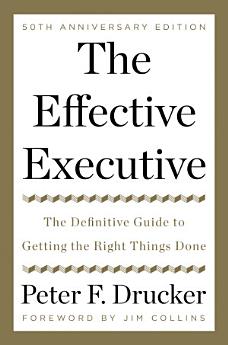The Effective Executive: The Definitive Guide to Getting the Right Things Done
About this ebook
What makes an effective executive?
For decades, Peter F. Drucker was widely regarded as "the dean of this country’s business and management philosophers" (Wall Street Journal). In this concise and brilliant work, he looks to the most influential position in management—the executive.
The measure of the executive, Drucker reminds us, is the ability to "get the right things done." This usually involves doing what other people have overlooked as well as avoiding what is unproductive. Intelligence, imagination, and knowledge may all be wasted in an executive job without the acquired habits of mind that mold them into results.
Drucker identifies five practices essential to business effectiveness that can—and must—be mastered:
- Managing time;
- Choosing what to contribute to the organization;
- Knowing where and how to mobilize strength for best effect;
- Setting the right priorities;
- Knitting all of them together with effective decision-making
Ranging across the annals of business and government, Drucker demonstrates the distinctive skill of the executive and offers fresh insights into old and seemingly obvious business situations.
Ratings and reviews
- Flag inappropriate
About the author
Peter F. Drucker is considered the most influential management thinker ever. The author of more than twenty-five books, his ideas have had an enormous impact on shaping the modern corporation. Drucker passed away in 2005.
Jim Collins has published multiple international bestsellers that have sold in total more than 11 million copies worldwide, including the perennial favorite Good to Great. His writings and teachings are based on extensive research projects designed to uncover timeless principles of human endeavor and have had a lasting impact across all sectors of society. All of Jim’s books share a common thread: the study of people and how they navigate the big questions of leadership and life.







